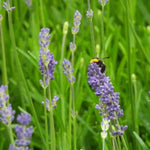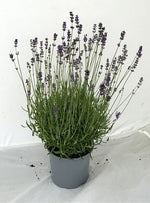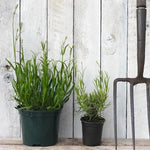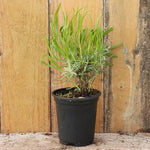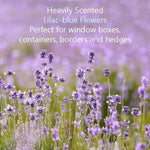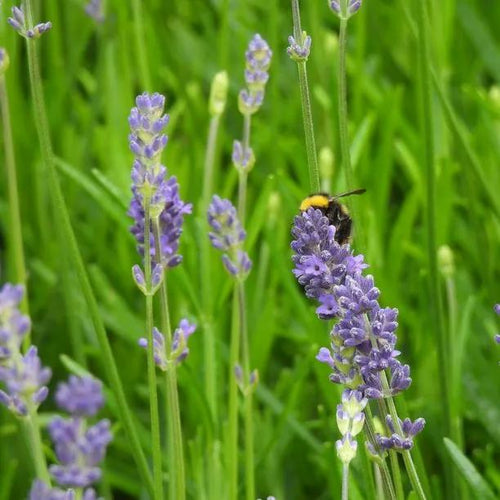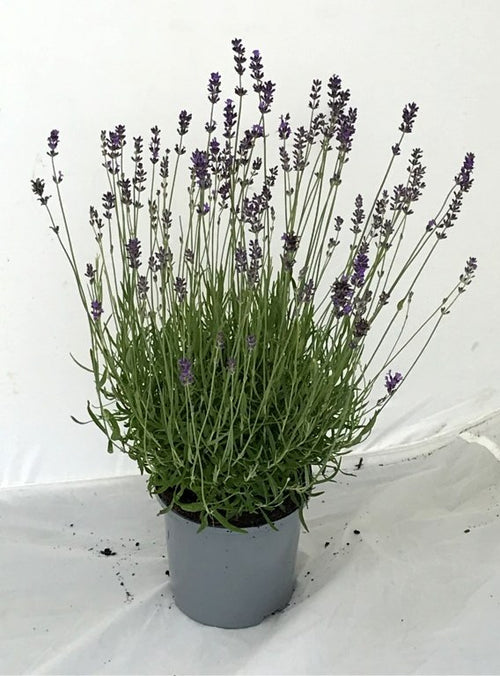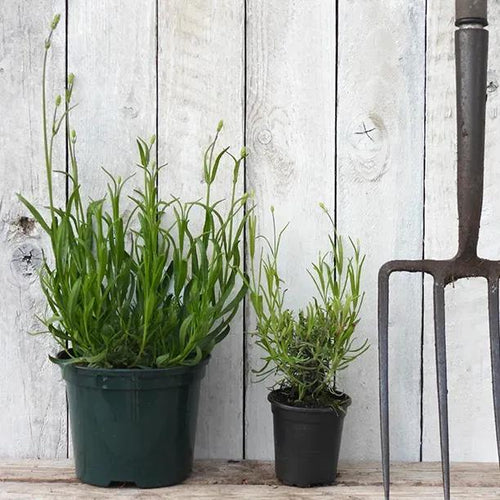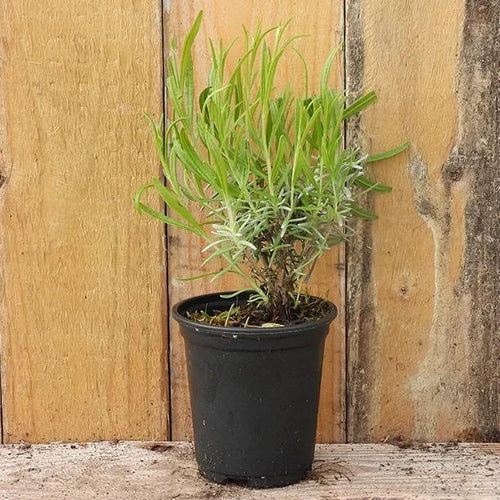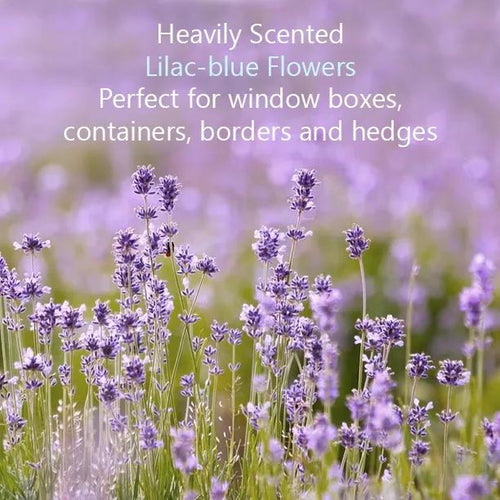About Munstead Lavender Hedge Plants
Munstead Lavender Hedge Plants
Munstead is the second most popular English lavender variety after Hidcote, both great low ornamental evergreen hedging plants.
Features
- When your order is ready: your mail order Lavenders are delivered by next working day courier (not the next working day after ordering!)
- Friendly support: if there is anything wrong with your plants when you inspect them, Contact Us within 5 working days
Delivery Prices
A typical delivery charge for potted shrubs like Lavender is £8 to £15, depending on the order size, if there are no larger plants like trees in the order as well.
Delivery is calculated automatically during checkout after you enter your delivery address.
Delivery Season
Lavender should be planted into warm soil.
If you plant it too early, before nighttime temperatures rise, the roots get shocked and set back, which is especially bad for little plants.
Features
- The smallest lavenders, in P9 pots, are never shipped before May
- The larger pot sizes are usually shipped from the end of April, but cold weather can delay
Delivery Lead Time
- Typically 2 weeks if the plant is in stock, rather than available to order before its delivery season
- We process orders in batches to keep costs low
- We keep you notified by email
Choosing a pot size
- For window boxes and other containers, starting with the smallest, cheapest plants in P9 pots is great because it pots these little plants up while putting them to use ornamentally
If you plant P9s out directly, the best time is late-May into June when the soil is warm and there is plenty of growing time before Winter. We don't recommend planting P9s out later: larger plants are stronger and will do better over their first Winter. - For quick borders, hedges and edges, or single shrubs that provide instant impact, larger plants in 2 litre pots are ideal. You get more root and more flower in the first year, and they don't look lost planted as a hedge at one every 13" (33cm)
You can safely plant these and larger plants out later in the growing season. - For filling a spot in a mature flower border with a lavender muffin-mound, or for a truly instant lavender hedge, 5 Litre pots are the largest we grow. We reckon Lavender sold in pot sizes larger than 5L has a higher failure rate in its first Winter.
How many plants per metre?
Spacing a Munstead Lavender hedge: Like most evergreen hedging, the default spacing is 3 per metre, 33cm apart in a single row.
About Munstead Lavender Plants
Munstead blooms before Hidcote, and has looser, paler lilac-purple flowers.
Features
- Use: Low hedging / edging, basic topiary balls & shapes
- Flowers: Pale lilac-purple spikes
- Flowering: June/July to September
- Scent: Strong, lavender
- Leaves: Evergreen, aromatic. Silvery when mature
- Height x Spread: 60cm x 60cm
- Unappealing to deer, rodents
- Drought tolerant when established
- Culinary herb
- RHS Plants for Pollinators
Growing Munstead Lavender
- Aspect: Full sun, South facing
- Soil: Well drained is vital, poorly fertile is preferable
- Soil pH: Above 6.5 is best. Likes chalk
- Hardiness Rating: H5 (to -15C)
- Suitable for the coast and windy locations
- Ideal for large pots & containers
Garden Design Ideas
Munstead has a well-earned reputation as tough, reliable, heavily scented and floriferous. It's one of the most popular English lavenders after Hidcote, the main difference being that its well-proportioned spikes of pale lilac-purple flowers are looser and much lighter than the deeper purple-blue of Hidcote.
The aromatic leaves are slightly longer, with the same variable greyish green that appears silvery in the right light.
Pale Munstead is ideal for framing herbaceous perennials - Achilleas, Peonies, Penstemons are classics - and it's especially renowned for combining with roses to cover up their woody base. It associates particularly well with yellow, orange or white roses.
But its glory is as a hedge, especially along a path of grey stone or gravel where it intercedes between hard and soft landscaping, merging them seamlessly - it looks striking surrounded by dark slate, and loves the heat.
Lavender is a medicinal and culinary herb with a rightful place in the herb garden with all the other wonderful smells and colours that pertain to Mediterranean herbs.
Planting Instructions & Aftercare
Read our guide on how to grow lavender, with a quick pruning video, and the best time to prune lavender.
History & Trivia
Munstead Wood is the garden created by Gertrude Jekyll (1843-1932) that, unusually, came before the house designed by her long term colleague Edwin Lutyens (1869-1944) that sits in it.
Dr Jekyll in the Strange Case of Dr Jekyll and Mr Hyde was named after Gertrude Jekyll's brother.
Jekyll bred her own plants to exacting standards, studying and selecting for "habit, form, colour, and cultivation". Her pioneering garden designs embraced the precepts of the Arts and Crafts movement as exemplified by William Morris.
She designed over 400 gardens, working in person on at the start, if not longer.
Lavender FAQs
- What's the difference between English, Dutch, and French "Butterfly" Lavenders?
- Can I grow Lavender in the Shade?
- Which Lavender variety is best for cooking?
- Harvesting Lavender Flowers for Oil or For Drying
- Potted Lavender 8:8:8 Watering Rule - More of a Guideline, really
Contact Us
- For general enquiries, use our Contact Us form
- If there is any issue with an order you've placed, or for a quote for a large order, our Sales & Support line is 01963 359 444












 Secure, One-Tap Checkout
Secure, One-Tap Checkout
 Hand Picked, Delivered to Your Door!
Hand Picked, Delivered to Your Door! 1 Year Bareroot Guarantee
1 Year Bareroot Guarantee